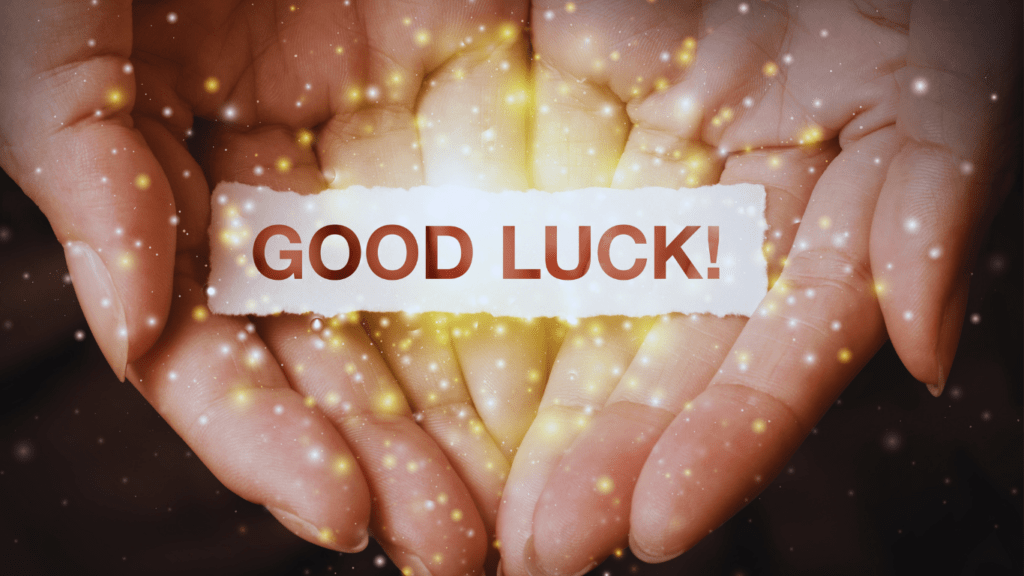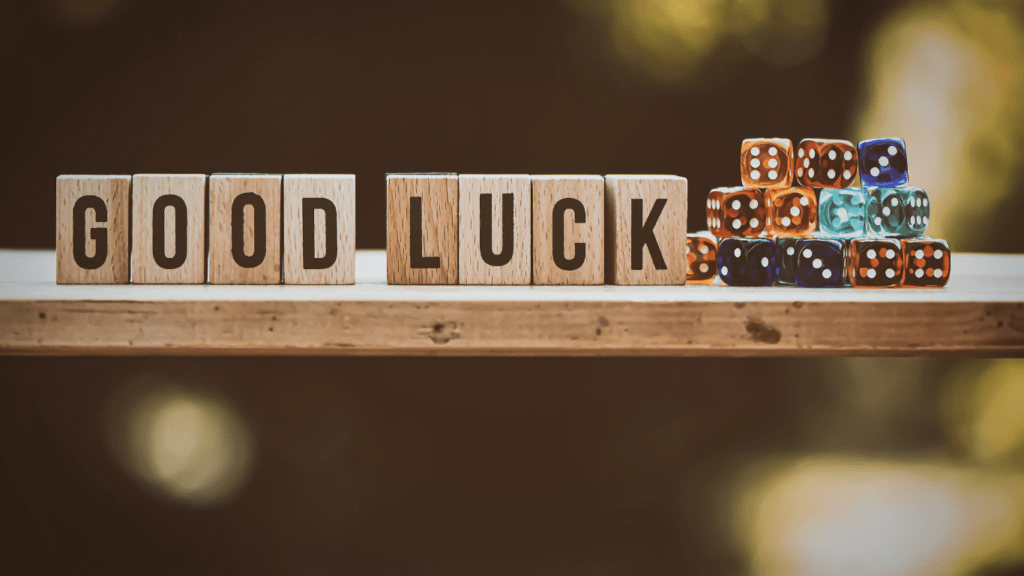Defining Luck and Chance
Luck and chance are interconnected yet distinct concepts that shape outcomes and perceptions. Examining their definitions helps highlight their differences and significance.
What Is Luck?
Luck refers to outcomes attributed to seemingly external forces or good fortune. People perceive it as personal, often tied to emotions or beliefs. For example, winning a raffle or finding money on the ground are events frequently viewed as “lucky.”
Cultural and psychological factors often influence perceptions of luck. Many associate it with supernatural forces, while others consider it a random alignment of circumstances favoring an outcome.
What Is Chance?
Chance involves randomness and statistical probability governing events. Unlike luck, chance doesn’t hinge on subjective feelings but mathematical likelihood. For example, rolling a die or flipping a coin are governed purely by randomness and chance.
In science, chance is analyzed using probability theory. This framework helps predict outcomes within chaotic systems, such as weather patterns or genetic variations.
- Subjectivity vs. Objectivity: Luck feels personal and emotional, while chance relies on measurable randomness.
- Perception: Luck is often tied to belief systems; chance is rooted in statistical evidence.
- Agency: Luck implies external forces or fortune influencing results; chance is neutral and doesn’t favor outcomes.
These contrasts reveal how interpretation and context distinguish luck from chance.
Historical Perspectives on Luck and Chance

Throughout history, luck and chance have been interpreted through various lenses, reflecting shifts in cultural, philosophical, and scientific understanding. These perspectives reveal how humans have sought to explain uncertainty and randomness.
Philosophical Views
Early philosophers explored luck and chance to address questions of determinism and free will. Aristotle distinguished between chance (random events bound by natural causes) and luck, which he associated with human intention. The Stoics, emphasizing determinism, viewed luck as an illusion, believing events unfolded according to a cosmic order. During the Enlightenment, thinkers like David Hume connected chance to probability theory, framing randomness as calculable rather than mystical. Such views shaped modern interpretations, positioning chance as integral to scientific inquiry.
Cultural Interpretations
Cultural beliefs have often linked luck to spirituality and rituals, contrasting with objective notions of chance. In Chinese culture, luck is influenced by concepts like Feng Shui and numerology, while European traditions connect it to superstition and symbols like four-leaf clovers. Indigenous cultures frequently associate luck with spiritual interventions or ancestral guidance. In contemporary society, pop culture and media continue to blend these interpretations, yet statistical probability increasingly sways the understanding of chance. Cultural frameworks highlight the subjective nature of luck, often blending objective randomness with personal beliefs.
The Science Behind Luck and Chance
Luck and chance are interconnected but distinct concepts, grounded in science. Examining their foundations highlights how randomness, perception, and cognition shape our experiences.
Probability and Randomness
Chance operates within the realm of probability and randomness, governed by statistical laws. Probability quantifies the likelihood of specific outcomes, often appearing in games or natural phenomena. For instance, rolling a six on a standard die represents a 1 in 6 probability. Randomness describes a lack of predictable patterns, such as the sequence of stock market fluctuations. Scientific tools like Monte Carlo simulations model randomness, revealing underlying structures and informing predictions without attributing outcomes to external forces.
Psychological Factors Influencing Perception
Perceptions of luck stem from psychological tendencies to attribute meaning to randomness. For example, people may view winning a prize as “lucky” rather than acknowledging random selection. Cultural beliefs amplify this perception, encouraging rituals to “enhance” luck. Studies reveal that individuals who feel in control of their environment often consider themselves luckier, as their belief systems influence their interpretation of random events. This psychological framing connects deeply with human emotions and experiences.
The Role of Cognitive Biases
- Cognitive biases skew our understanding of luck and chance, impacting decision-making.
- The gambler’s fallacy leads people to believe future outcomes depend on past events, such as expecting a coin toss to result in heads after successive tails.
- The illusion of control bias causes individuals to think actions—like choosing lottery numbers—affect random outcomes.
- Confirmation bias reinforces belief systems by focusing on instances aligning with perceived luck.
- Recognizing these biases exposes the mental shortcuts influencing how we interpret randomness and personal fortune.
Real-Life Examples of Luck Versus Chance
Luck and chance manifest in real-world situations, from recreational activities to daily experiences. Distinguishing these concepts helps to understand how randomness and perception influence outcomes.
In Games and Gambling
Games and gambling highlight the differences between luck and chance. Chance governs the randomness of card draws or dice rolls, determined by statistical probabilities. For example, a fair six-sided die has a 16.67% probability of landing on any given number. Luck, however, enters when players perceive their wins as influenced by external forces or personal fortunes. A poker player attributing a winning hand to “being lucky” might ignore the strategic decisions or statistical odds that aligned during the game. Casinos often exploit this perception by creating environments that amplify feelings of luck while operating entirely on defined probabilistic systems.
In Everyday Life
Everyday scenarios often blend luck and chance. Crossing paths with an old friend might be seen as lucky, but it’s a product of chance events like timing and location aligning unexpectedly. Winning a promotion could feel like luck, yet the randomness of being chosen depends on structured criteria, such as performance reviews or organizational needs. Some interpret fortunate circumstances, like narrowly avoiding an accident, as “lucky breaks,” though chance explains the probabilities that prevented the incident. These interpretations reveal how subjective perspectives shape our understanding of seemingly random events.


 Margaret Mallett brought a unique perspective to Gamble Today Smart, focusing on user experience and ethical gambling practices. Her deep understanding of responsible gaming and commitment to fairness helped shape the platform’s core values. Margaret worked tirelessly to create content that educated users on the importance of transparency and accountability in gambling, ensuring the platform remained a trusted resource for all.
Margaret Mallett brought a unique perspective to Gamble Today Smart, focusing on user experience and ethical gambling practices. Her deep understanding of responsible gaming and commitment to fairness helped shape the platform’s core values. Margaret worked tirelessly to create content that educated users on the importance of transparency and accountability in gambling, ensuring the platform remained a trusted resource for all.